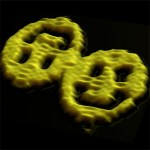harvard
Perhaps because it's college graduation and reunion time, L.V. Anderson at Slate has written a column entitled "People Still Say They 'Went to College in Boston,' Meaning Harvard? Please Stop Doing This." She claims that by giving such an evasive answer, one "buy[s] into the overblown mythos of Harvard and the presumption of Ivy League superiority." Or worse, it "functions as an elitist dog whistle," and that those who may "react inelegantly" upon hearing one went to Harvard/Yale/Princeton and others are "insecure people who perhaps have not yet learned that Ivy League schools confer…
A few months ago, I wrote about the problems with academic publishing:
These days, there's an entire industry of academic publishers that have become so fully integrated into the research system that many scientists don't realize that there's any distinction between doing science and publishing in journals. However, these journals cost an enormous amount of money (mostly public tax dollars), yet add little value to scientific research, while simultaneously slowing the pace of discovery and limiting the dissemination of knowledge.
Many individual scientists have taken personal action to combat…
I got this e-mail from the president of my school yesterday:
Dear Members of the Harvard Community:
Starting this October, Harvard will celebrate its 375th birthday. Such milestones encourage us to reflect on our institution's remarkable past--to remember that all we aspire to today finds inspiration in the creativity and commitment of those who have come before.
Even more, our forebears' example reminds us that, while we stand on the foundations they have built, we must never stand still. Our history not only provides us with a sense of continuity and confidence; it highlights Harvard's…
Most synthetic biologists and biological engineers (and basically everyone else) think of DNA as code, simply carrying the information to make the RNA and proteins that do the real work inside the cell. In the past few years, a small group of biological engineers have used DNA instead as a physical substrate, a programmable nanomaterial to build all kinds of tiny shapes with (even smiley faces). The shapes that the DNA folds into depend on the sequence, which controls how different strands match up to each other and bend. For a great introduction to building shapes out of DNA in 2D and 3D…
Chaplain's E-mail Sparks Controversy:
In a private e-mail to a student last week, Abdul-Basser wrote that there was "great wisdom (hikma) associated with the established and preserved position (capital punishment [for apostates]) and so, even if it makes some uncomfortable in the face of the hegemonic modern human rights discourse, one should not dismiss it out of hand."
...
"I believe he doesn't belong as the official chaplain," said one Islamic student, who asked that he not be named to avoid conflicts with Muslim religious authorities. "If the Christian ministers said that people who…
This guest post comes to us from a colleague and friend, Dr Michael Wolfe. Enjoy!
The simultaneous celebrations of the 200th anniversary of the births of Abraham Lincoln and Charles Darwin today offers a special opportunity to reflect on the state of our democracy and the status of science in our society. That these two iconic figures were born on the exact same day is, of course, a coincidence. And yet, as often happens in life, a chance confluence of events can help us see connections that we might otherwise miss.
Today we lionize Lincoln as perhaps our greatest President, and his eloquent…

